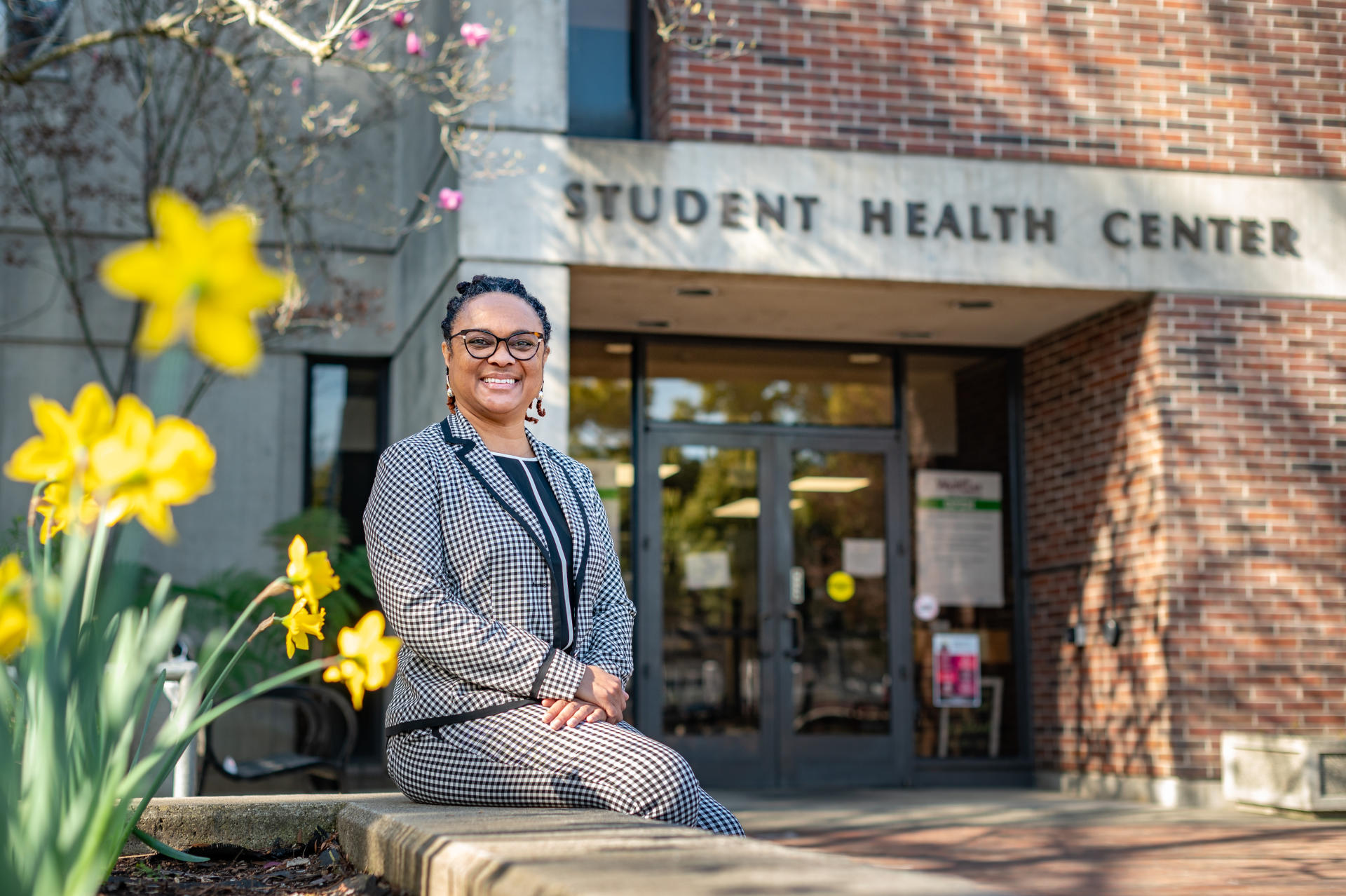5 Questions with WellCat Services Director Juanita Mottley

WellCat Health Center Executive Director Juanita Mottley is photographed outside of the health center on Friday, March 5, 2021 in Chico, Calif. (Jason Halley/University Photographer/CSU, Chico)
Juanita Mottley was destined to become a caregiver. The youngest of seven children, she spent much of her youth looking after older members of her family. After graduating from high school at age 16 and college at 19, she transitioned into the official world of caregiving as a night-shift oncology nurse at a hospital in Georgia, and then as executive director of an assisted living and dementia facility. In 2003, Mottley moved to higher education, serving in various roles related to health and well-being at Florida Gulf Coast University and Agnes Scott College. When she arrived at Chico State in 2018—just four months before the Camp Fire—she began her tireless work as executive director of WellCat Services, overseeing both physical and mental health services for the campus. Now also serving as the University’s pandemic manager, Mottley helps lead the response to COVID-19, including case management and testing protocols, and is working to help bring 20,000 students, faculty, and staff safely back to campus. A Herculean task for sure, but she’s always welcomed a good challenge.
What attracted you to being a caregiver?
My mom was the most giving and caring person, and was known for that in our community. One of my great aunts was also a nurse, which was a very interesting story because she didn’t go to nursing school per se. And she was the only African American nurse in Hendry County in Florida. She didn’t graduate high school until she was 76, but she delivered thousands of kids in that county. I grew up hearing those stories, about how at that time she didn’t go to nursing school and didn’t take the boards—she was set with a committee and it was more of a verbal exam. And that’s how you became a nurse. I grew up knowing that background and always had that heart of making a difference and helping people.
Did working with an older population prepare you to work in a university setting?
Caregiving is caregiving—age really doesn’t matter. But when you’re working with dementia and Alzheimer’s patients—being creative, thinking out of the box, and how you take care of them and keep them safe—it can resemble taking care of these adolescents who have never been on their own and are now living as adults. The biggest part is caring and listening.
What have you learned about working with college students?
They want to be heard, they want to have a voice, and they want someone to believe in them and show them that they’re proud of them. Some of them have never had that. Sometimes parents focus more on telling their kids what not to do. I have learned with this age group that if you listen to them, they will solve their own problems most of the time if you just allow them to talk it through. But they want you to believe in them and to say, “you’re doing a great job.” And that way, when you say, “you know, you could have done this better,” they don’t take it as harsh, because you have been providing positive reinforcement when they were making good choices.
What is the connection between physical health and mental well-being?
Mental and physical are totally intertwined. One can have a major impact on the other, and vice versa. It’s so important that we take care of our mental and physical health. I always refer back to Maslow’s Hierarchy of Needs, especially in the college-age group. The main challenges with this age group are eating and sleeping enough. We have students who sometimes haven’t slept in days—this is not OK. And the other part that’s important to me in the mental health aspect is trying to reduce the stigma of seeking help, especially among under-represented groups. With COVID-19, the importance of mental health has really increased and it has exposed the disparities in mental health and physical health care. So, for me, my No. 1 role is to reduce the stigma associated with mental health care. The silver lining to COVID-19, though, is that it has allowed us an opportunity to increase the availability and accessibility of telehealth.
What is role does science play in the University’s COVID-19 response?
The science is constantly changing. The vaccine is not a bulletproof vest, but it does provide additional protection. There are so many what-ifs in science, and as we learn more and additional information is released, we can make better decisions as to how we can safely bring students back to campus. What has stayed true, though, is that face coverings, washing hands, and social distancing are the foundation to keeping yourself as protected as possible. COVID-19 is all of our issue and concern, and we all have to take responsibility and try to keep our community safe. We all have to do our part and in the end go with what science says. We won’t always get it right, as we’ve seen, but we will continue to strive to make the best choices with what we know.


